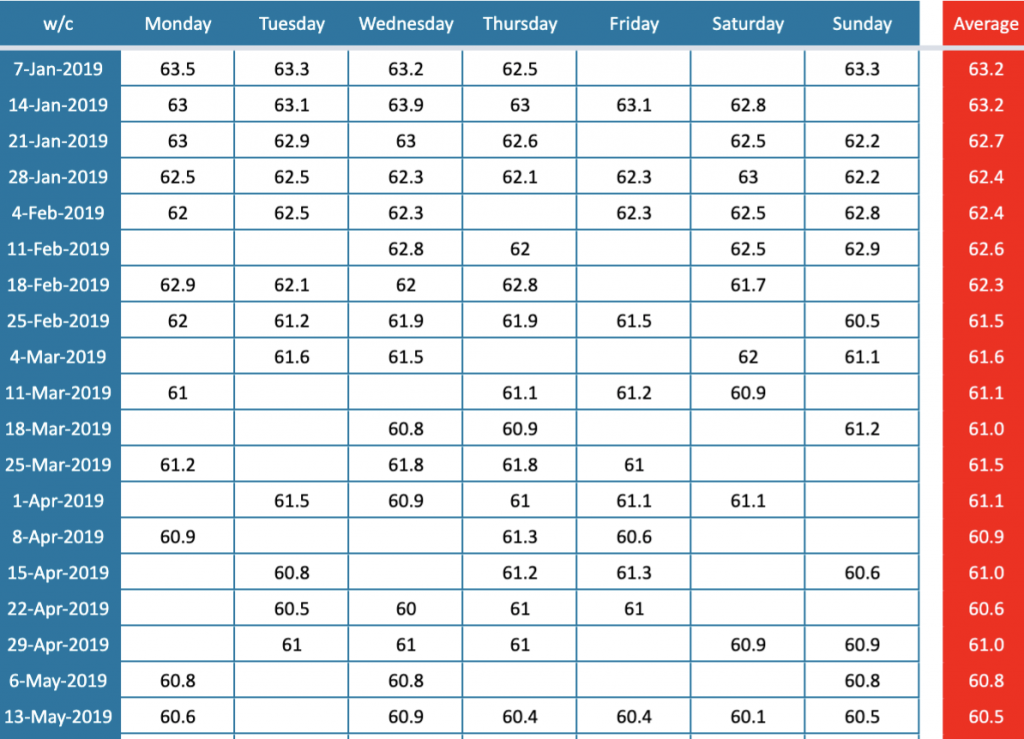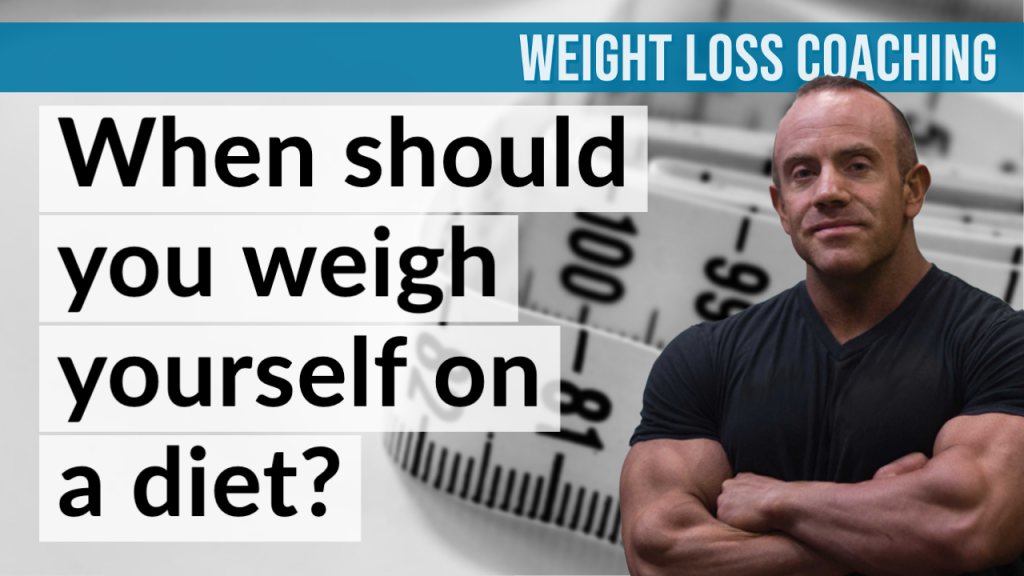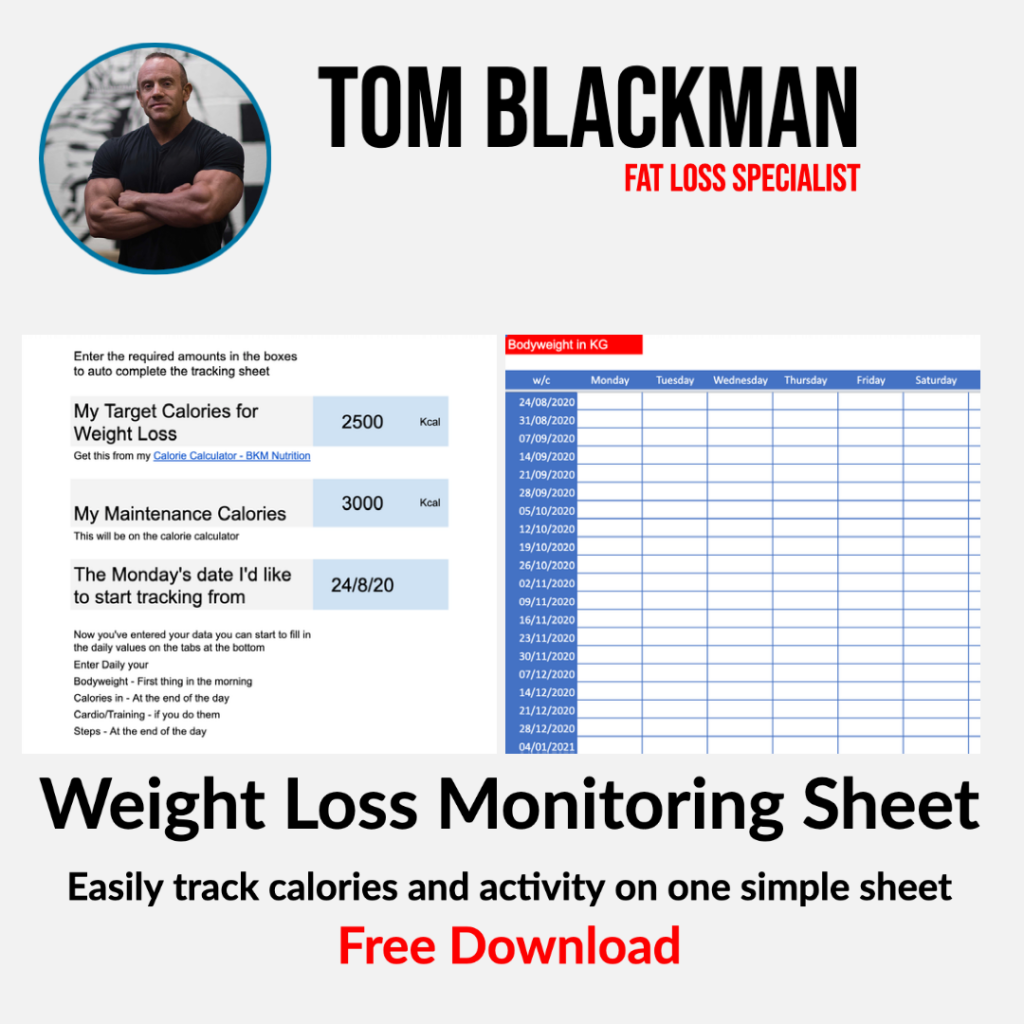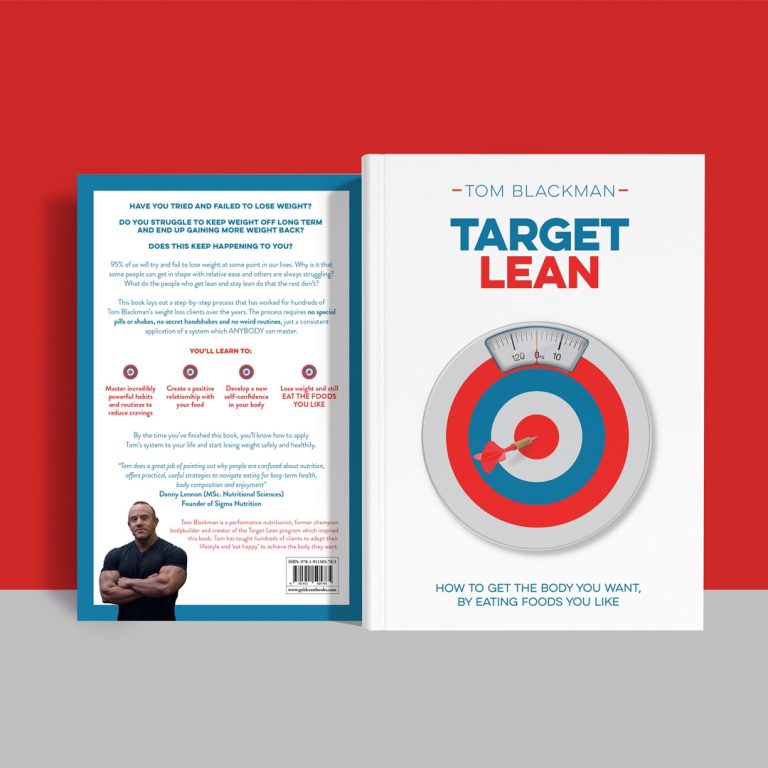Should you weigh yourself when dieting?
Is tracking your weight necessary on a diet and can it be more harmful than helpful?
What should you do when you aren’t losing weight anymore?
Do you weigh yourself when dieting?
I’ve been working with clients for weight loss for over 10 years.
The number 1 measure that they used to track their progress was weighing themselves. If they’d lost weight then they had succeeded, if they hadn’t they had failed.
The heavy reliance on the scales as an indicator had, in some cases, brought about eating disorders and a negative association with food.
In this article I will go into the best practices to employ when tracking your weight on a diet, when to weigh yourself, how to weigh yourself properly and how to interpret the results so that you continue to make progress.
Weight is a measure of your mass, not your progress.
I’ve had clients drop very little weight and still need dress sizes 3 times smaller. I’ve had female clients gain muscle and lose fat so their weight stays the same but they look incredible
That you’ve not lost weight on one occasion does not necessarily mean progress has stopped. If you weigh yourself when dieting you must do it consistently and not just every few days when you remember.
When is the best time to weigh yourself?
Before you get on the scales you need to think.
“What am I carrying around with me?”
I don’t mean your change in your pocket, I mean the extra weight you’re carrying in your body that’s not your body.
You can carry up to 72 hours of food in your gut, you retain water through the day which is surplus to the body’s needs. Your muscles are stocked up with glycogen (your carbohydrate energy for exercise) and also some fat called IMTAGs which help with endurance exercise.
These elements all contribute towards your weight.
You can help to minimise this extra weight by weighing first thing in the morning right after you go to the toilet. You’ll be pretty low on most of the extras at this point and so will get a lower weight on the scales.
Absolutely do not weigh yourself in the evening when dieting, you’ll be heavier from all the food you’ve eaten that day as well as the water you may be carrying around which hasn’t been excreted through sweat, urine or breathing out (you lose a lot this way in your sleep)
This is why it’s pointless weighing in the evening at slimming group meetings. You’ll be at your heaviest and so the figure will be more depressing.
Where and how to weigh yourself
If you are using scales then stick to the same ones every time. Different scales can be slightly out depending on their quality and age. For a really accurate measurement use a displacement scales like the big old fashioned ones in gyms. Or use a reputable brand like Seca, here are some options for you
If you are using portable scales then always use a flat and hard surface as carpets can distort the scales and cause a slight variation.
You could also use an electronic scales device in shops like Boots however I’d be very wary about trusting their ‘body fat’ measuring readout. The reason is that these devices measure bio impedance which is how well electricity passes through the body. This can be affected by water and glycogen levels in the body. If you don’t believe me, test yourself then drink a pint of water and test yourself again. You’ll get a different reading.
These scales CAN be useful if you use them consistently and use the readouts as a measure of average progress. As a single use tool they are pretty useless though. More on averages further on.
Tracking weight loss
If you are going to weigh yourself when dieting then you need to do it every day, you also need to track the results somehow.
You can use my free tracker tool here
Or create your own spreadsheet. The reason for this is that daily weights are largely irrelevant, it’s the average weight that really matters.
Here’s why you should track your daily weigh ins over averages not single units
Your daily weight will fluctuate from water, food, glycogen and intramuscular fats for exercise. These will vary through the week depending on your activity and eating habits.
Most people are heavier on a Monday due to having less activity and more food on the weekend. When is it that most people weigh? Monday morning or evening at their slimming group. Nice depressing set up for the week right there.
If you track your weight over the week and log the average then you’ll get a more accurate representation of progress as over the week all these factors will even out.
Over 2-3 weeks you compare the averages and this will show if weight is going down. What this means is that if you eliminate all the other factors then the only major variable will be body fat.
If the weight is dropping on average, it’s likely that this is from body fat loss.
I regularly have clients worried that they are not making progress and then we look at the averages and the evidence is clear. They are slowly losing weight.

This can be an incredible boost to their confidence. The progress is not visible from just one figure but over the weeks the average weight has dropped
This data is from a female client who dropped 3 dress sizes and gained muscle for a leaner, stronger and feminine physique. Weight loss was slow but clear progress is in the averages
What’s the difference between weight loss and fat loss
I’ve touched on this earlier but it’s worth giving this a section to itself.
Body weight is composed of these factors
- Organs and Bones
- Water in the body
- Food in the body
- Glycogen and fat stored in muscles
- Body fat
Weight loss can be from a fluctuation of all these factors, given that bones and organs hardly ever vary.
Weight gain or loss comes from
- Eating more or less food – Calorie Surplus or Deficit
- Drinking more water – Fluid intake
- Loss of muscle or fat – Catabolic processes
- Gain of muscle or fat – Anabolic processes
- Hormonal fluctuations causing retention of fluids
Fat loss is ONLY due to a calorie deficit. Eating more calories from food and drink than you expend moving about and exercising.
Watch this video for a more detailed explanation of the differences between weight loss and fat loss.
You need to be in a calorie deficit to lose body fat. You don’t need to be in a calorie deficit to lose weight.
It’s important you understand this every time you get on the scales so you don’t immediately think that you’ve failed if you’ve not lost or indeed gained weight.
Rapid drops in weight are almost always water or food and not body fat.
It’s also important that you remember this as normally the first week of weight loss will be mainly from water/food fluctuations and not body fat loss.
Why am I not losing weight?
If you are not losing weight then there could be a number of reasons. These all assume you are actually following a plan of some sorts and not stuffing your face with cake every day while moaning that you aren’t losing weight. I’m also assuming that you weigh yourself every day or at least 5 days a week in order to get a decent average.
1. You are not in a calorie deficit due to adaptations by the body and as a result you are not losing body fat.
The body likes to keep us at a level of body fat that it is comfortable with which is called homeostasis or maintenance. It will manipulate your out (calories out) so that you
- Slow down
- Become lazier
- Do less steps,
- Become more efficient at repetitive jobs
As a result your output slows down in line with the calories you are eating and so you return to maintenance. A knee jerk reaction to this is to reduce calories more. This is not wise as the same adaptation will occur over time. Focus on increasing activity as much as you can first.
Use a step counter to track steps as a first change. Here are some cheap and effective ones.
2. You are not in a calorie deficit as you are overeating without knowing it
If you are not tracking your food intake or are using a tool that is not accurate then it’s possible you are not eating in a calorie deficit which is stopping body fat being burned.
Many free use tools on the web such as My Fitness Pal allow users to add their own values which are often added wrong. Just search for the values of a Nando’s meal to see what I mean.
Therefore it’s not wise to blindly trust an app, where possible use the labels on the backs of food or the companies website to track your frequently eaten foods.
It’s also possible that you are not aware of the calories in food because you are not tracking your calorie intake.
I cannot stress how important it is to track your calorie intake correctly for at least 4 weeks so that you can gauge an idea of how many calories you actually eat in a day.
Many people are astounded by the amount they are actually eating when they start tracking and this alone brings very fast results.
3. Your body composition is changing to gain muscle and lose body fat
I’ve worked with numerous clients whose weight has not dropped that much but they have made incredible changes to their body. If you are gaining muscle at the same rate that body fat is dropping you may not see any change in weight at all.
This is why it’s vitally important to take progress photos as you go. I’ve sat with clients who are frustrated that their weight has not moved in weeks, then we break out the pictures we’ve taken on the way and they have obviously improved how they look.
Measure these factors as well as weight:
- Your progress in the gym
- How you feel after exercise
- How much you can do per session
- Are your clothes fitting differently
- Photos of your progress taken at the same time in the same place each week
Calorie Calculator for weight loss
If you are not sure where to start with the calories you need for fat loss then use my free calorie calculator here
Calorie Calculator and Macro planner
It will give you
- Maintenance calories
- Calories for fat loss
- Macro split suggestions to follow
You can then use these figures with my MY FITNESS PAL GUIDE to start tracking your calories for losing body fat
You can also watch my 21 Day Fat Loss Focus playlist which guides you through your own fat loss plan.
When you should not weigh yourself
Finally it must be said that not all people should weigh themselves. I have worked with several clients who have stuck religiously to their diet, have done all the exercise and have still only made minimal or no progress on the scales.
Normally this is due to underlying conditions such as PCOS or Hashimotos which affects metabolism and thyroid hormone. PCOS can reduce your metabolism by 30% and it’s a hard cookie to crack. However it is very possible with the right diet and exercise schedule.
For these clients we do not weigh. We go by the other factors outlined above to measure progress and this works much better. They are happier as they don’t get the constant negative feedback from the scales and they make progress just fine.
You should also think very carefully about weighing yourself if you have any eating disorder. The scales can take control of your brain and the focus when working with an eating disorder is to give control to you in a positive manner. For clients that I have worked with for disordered eating patterns we do not weigh and focus instead on positive eating relationships.
Disclaimer – I am not a qualified psychologist or eating disorder specialist and I do not treat eating disorders, I work with people to enhance their understanding of nutrition which brings a positive relationship with food. My advice is not medical just observational from my practice.











